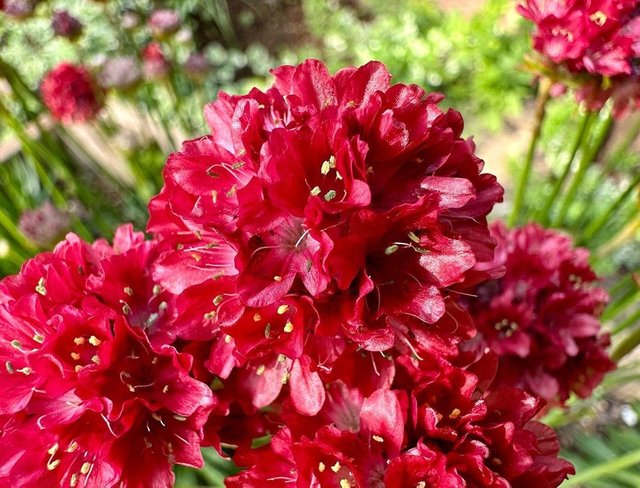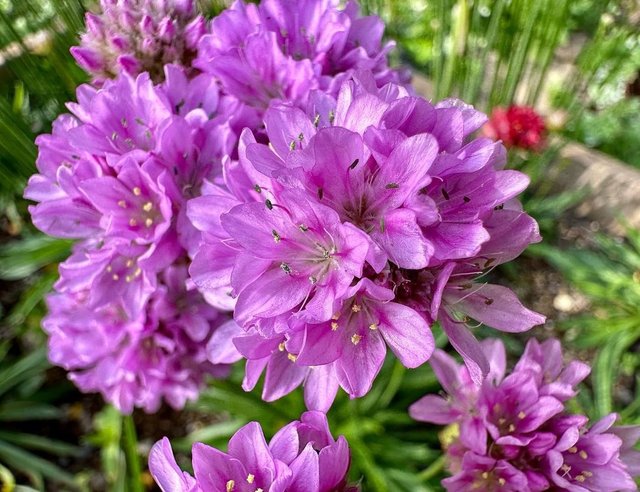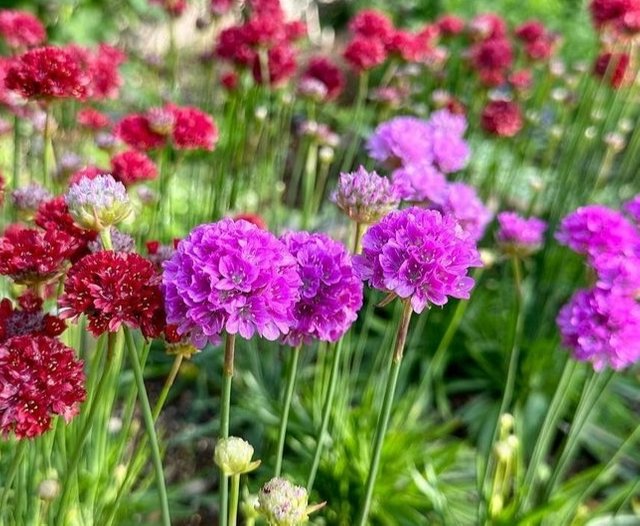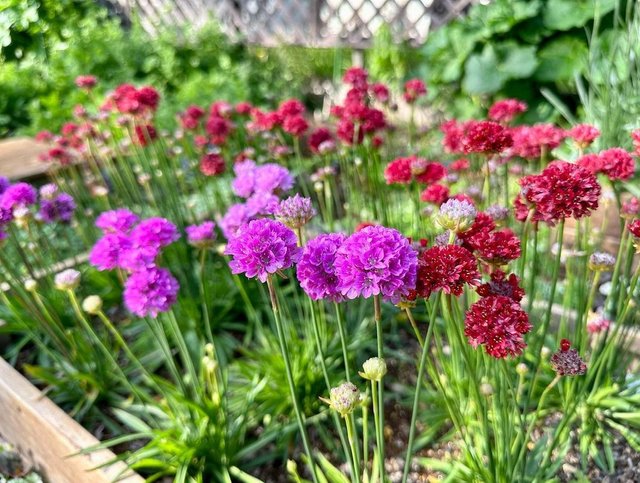



Nestled along rugged coastlines, where the salty breeze dances with the crashing waves, sea thrift, also known as Armeria maritima, stands as a resilient emblem of coastal beauty. With its delicate pink or white pom-pom-like blooms atop slender stems, sea thrift graces the rocky shores of coastal regions worldwide, from North America to Europe and beyond.Sea thrift's ability to thrive in harsh coastal environments is a testament to its adaptability and resilience. Its deep-rooted system anchors it firmly to the rocky substrate, securing it against the relentless forces of wind and tide. This resilience extends to its ability to withstand salt spray, drought, and even poor soil conditions, making it a stalwart survivor in the coastal ecosystem.
Beyond its aesthetic appeal, sea thrift plays a crucial role in coastal ecosystems. Its dense clusters provide habitat and shelter for small creatures, such as insects and birds, seeking refuge amidst the rocky terrain. Additionally, its extensive root system helps stabilize the soil, preventing erosion along vulnerable coastlines.Sea thrift's beauty has not gone unnoticed by humans throughout history. Coastal communities often incorporate this charming plant into their landscapes, where it serves as a symbol of seaside charm and resilience. Artists and poets have been inspired by its delicate blooms, capturing its essence in paintings, literature, and photography.
For gardening enthusiasts, sea thrift offers a versatile and low-maintenance option for coastal landscapes and rock gardens. Its compact size and tolerance for harsh conditions make it an ideal choice for adding color and texture to seaside gardens, where it can cascade over rocky outcrops or spill from containers with ease.While sea thrift is relatively low-maintenance, it thrives best in well-drained soil and full sun. In regions with hot summers, providing some afternoon shade can help prevent stress and prolong blooming. Deadheading spent flowers encourages continuous blooming throughout the growing season, while occasional division helps rejuvenate overcrowded clumps.